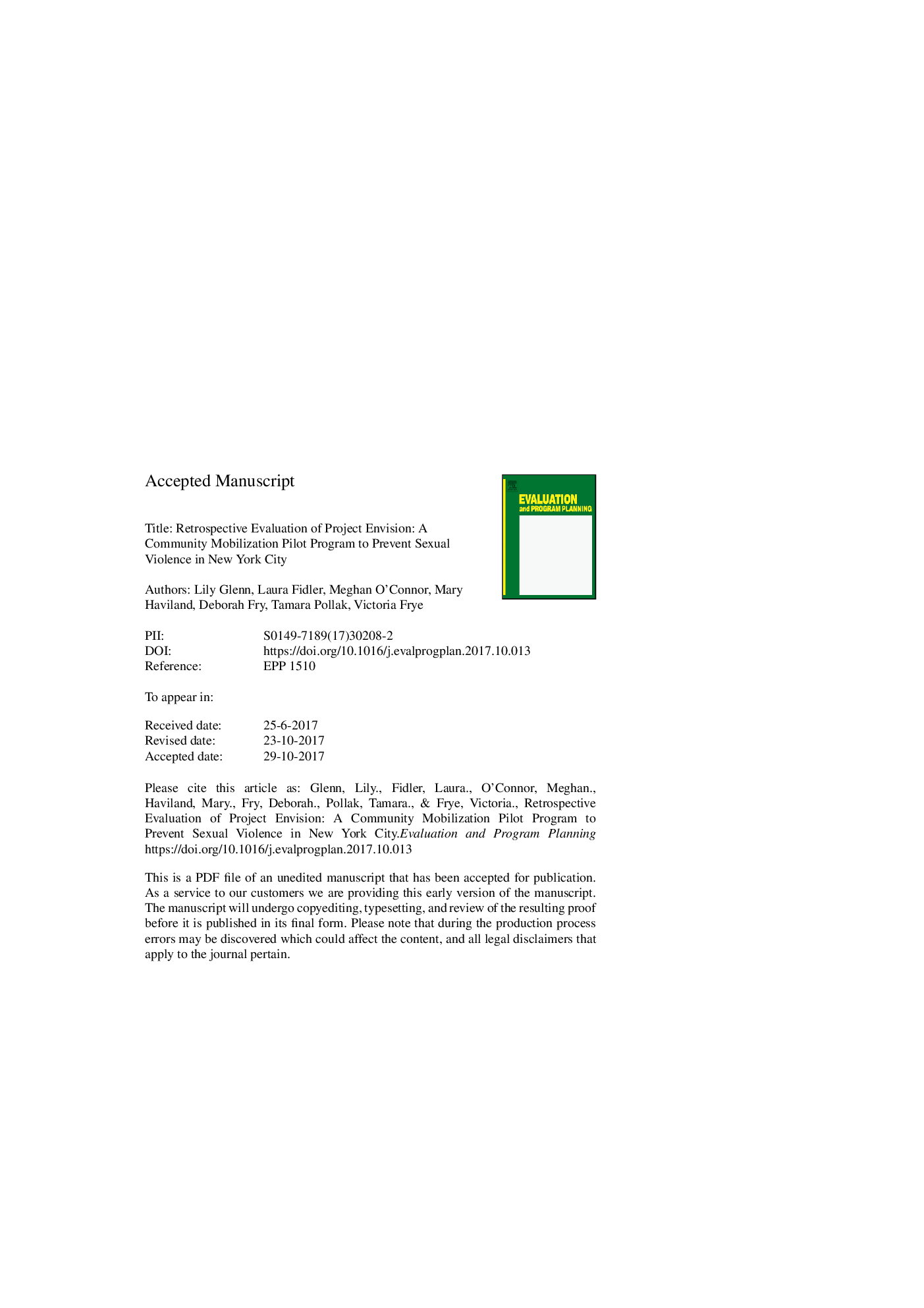| Article ID | Journal | Published Year | Pages | File Type |
|---|---|---|---|---|
| 6792378 | Evaluation and Program Planning | 2018 | 35 Pages |
Abstract
Sexual violence is a public health problem associated with short- and long-term physical and mental health consequences. Most interventions that aim to prevent sexual violence before it occurs target individual-level change or promote bystander training. Community-level interventions, while increasingly recommended in the sexual violence prevention field, are rarely documented in peer-reviewed literature. This paper is a targeted process evaluation of Project Envision, a 6-year pilot initiative to address social norms at the root of sexual violence through coalition building and community mobilization in three New York City neighborhoods, and reflects the perspectives of those charged with designing and implementing the program. Evaluation methods included a systematic literature review, archival source document review, and key informant interviews. Three themes emerged from the results: community identity and implications for engagement; capacity and readiness for community mobilization and consequences for implementation; and impacts on participants. Lessons learned include the limitations of using geographic boundaries to structure community interventions in urban settings; carefully considering whether communities should be mobilized around an externally-identified issue; translating theoretical frameworks into concrete tasks; assessing all coalition partners and organizations for readiness; critically evaluating available resources; and recognizing that community organizing is a skill that requires investment from funders. We conclude that Project Envision showed promise for shifting institutional norms towards addressing root causes of sexual violence in addition to providing victim services.
Related Topics
Health Sciences
Medicine and Dentistry
Public Health and Health Policy
Authors
Lily Glenn, Laura Fidler, Meghan O'Connor, Mary Haviland, Deborah Fry, Tamara Pollak, Victoria Frye,
